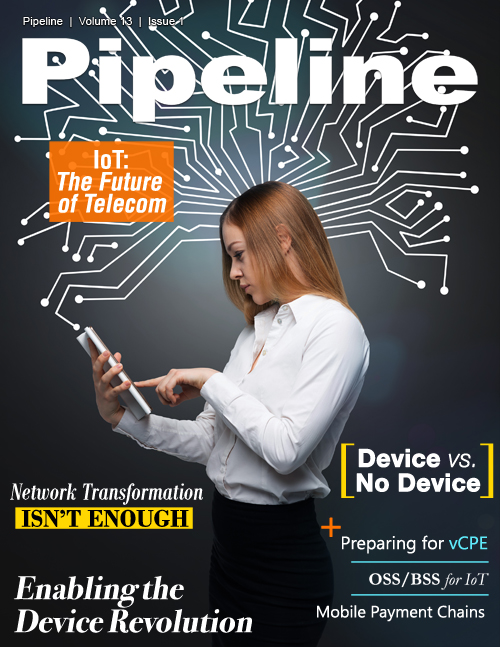OSS/BSS Considerations for the Internet of Things
In addition, they must be agile enough to launch new marketing plans and services and process end user changes as quickly as their marketing department can dream them up, turning their back office into a genuine revenue generator.
Where smart revenue sharing
comes in
Across every industry segment, players face the same challenges. They need to be able to onboard new partners quickly, launch personalized new contracts, amend existing contracts rapidly, understand and respond to the different needs and business logics of each industry, and to create revenue sharing schemes that are compliant with a variety of industry segments.
Smart revenue sharing is the ideal solution for these challenges because service providers are able to implement solutions that can facilitate these complicated partnerships and revenue-sharing relationships. This results in increased revenue, being a more attractive partner, a reduced total cost of ownership, and ultimately the ability to cope and scale with any demands they are presented with.
Making smart revenue sharing work
Armed with a combination of partner management and smart revenue sharing, service providers can interact smoothly and seamlessly with all their partners, irrespective of whether they are MVNEs, MVNOs, OTT providers, content aggregators, application developers, mobile money and payment service providers, utilities or banks.
Each of these sectors has its own set of rules, its own business logic, and its own way of doing business. As the IoT market becomes increasingly sophisticated, so the development of these personalized relationships will become more important.
Together, partner management and smart revenue sharing enable the creation of new revenue streams. IoT or communication service providers can, for example, introduce bundle offers together with digital service providers and provide overall support for today’s digital lifestyle, IoT and the connected world.
Service providers are able to implement solutions that facilitate partner management, settlements, and revenue-sharing relationships. They can create personalized contracts and relationships with each and every one of the partners in their ecosystem; speed up and automate the partner on-boarding process; manage and settle telecom and non-telecom partnerships with ease; provide support for an unlimited number of revenue sharing and hierarchy levels; and offer advanced self-care capabilities so that partners can manage their preferences.
Transportation use case
This example of electric car charging stations scenario demonstrates how IoT software goes beyond plain billing for a "smarter" approach.
The electric car charging infrastructure provider needed to implement a real-time, transaction-based charging and billing, customer management and partner management solution. With the ability to offer personalized pricing plans, each charging station can invoice different rates and prices and handle numerous time-and volume-based tariffs. Each tariff can be combined with specific factors such as parking fees per time unit; penalty for exceeding the maximum parking time; maximum and minimum amperage and minimum revenue.
Additional flexibility in-built in the solution enables a driver to pre-order a charging unit point for a specific time or day and is able to charge a premium fee for this service. The charging unit will be then "blocked"; i.e. allocated for the driver for a certain amount of time. This is especially important for busy hours or places, such as charging stations placed at a movie theater or a stadium’s parking lot, for example.



















